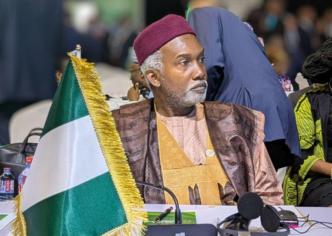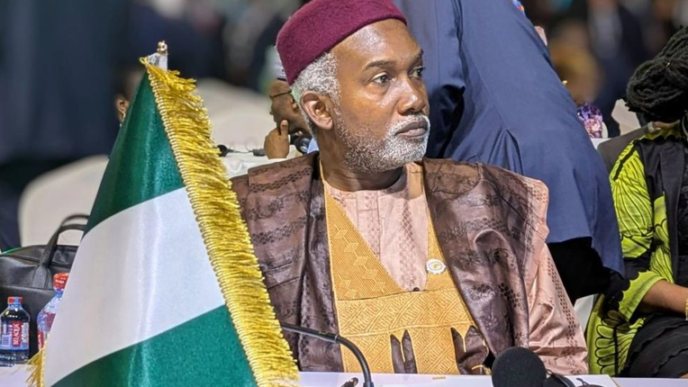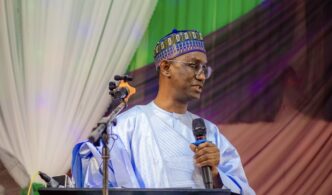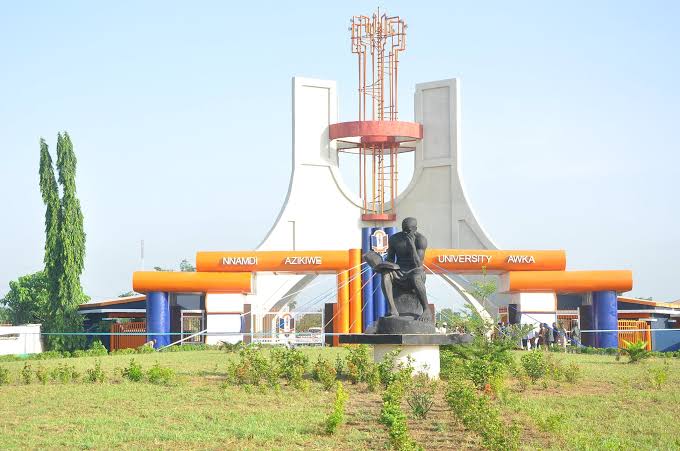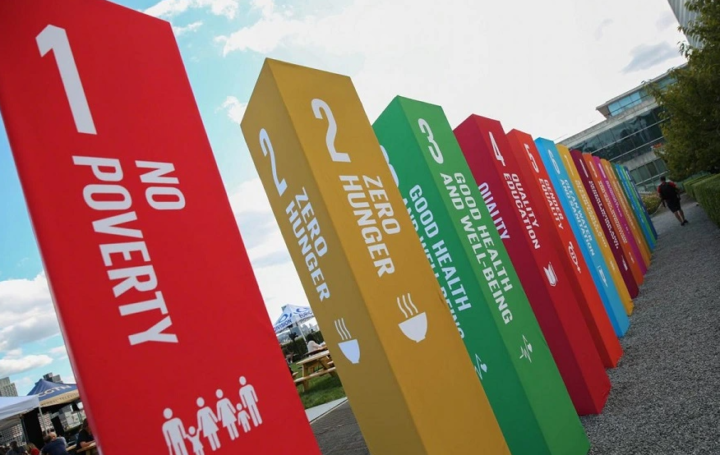BY IDRIS SHEHU
Since enrolling to study political science at Ahmadu Bello University (ABU) in Zaria, Ayuba Bello has spent more days worrying about getting money for tuition fees and personal care than he has focused on studying.
Bello is one of ten children born into a struggling farming family in Kaduna. He is also the first child of the family to attend university. Poverty and hunger were constant threats to his dream of shattering the generational ceiling and becoming the first graduate from the household.
A relentless Bello soldiered on, until the Student Loan Bill was passed into law and the government stopped funding and subsidising education in federal universities across the country.
Advertisement
Federal tertiary institutions used to offer Nigerians the cheapest access to quality education. However, the legislation drove a nationwide increase in tuition fees—as high as 800% in some federal institutions.
According to the National Bureau of Statistics (NBS), over 113 million Nigerians live in multidimensional poverty and battle an inflation rate north of 30 percent following the removal of the petrol subsidy regime. The federal university tuition hike was a devastating blow to millions of households that were disenfranchised from tertiary education.
Emmanuel Osodeke, president of the Academic Staff Union of Universities (ASUU), predicted that 50 percent of students would drop out.
Advertisement
Bello was one of the thousands of indigent students on the verge of dropping out of school due to the tuition hike. He was a final-year student, but all the sleepless nights and struggles poured into his dream—and that of his family—were heading for futility.
“I was depressed, and I was thinking of dropping out,” Bello said.
“The struggle I encountered in my academic study was very tough. I am a self-sponsored student, but my father tries to ensure I complete my education.
“Sometimes, I am forced to fast every Monday and Thursday because I do not have anything to eat.”
Advertisement
Bello’s father attempted to mitigate his son’s struggle. He placed his farmland on sale. The land is the family’s sole source of livelihood.
But a hand of love and hope came just before the family’s prized piece of property was sold.
Bello was presented with a rope of hope out of the hole of anxiety and sadness his financial situation had condemned him into.
OPay, Nigeria’s leading financial service provider, launched a N1.2 billion 10-year scholarship initiative to support exceptional students across Nigerian universities.
ABU Zaria was one of the institutions earmarked for the philanthropic programme. Forty students from the school were awarded ₦12 million in scholarships. Each student got ₦300,000, which covers educational fees and personal needs.
Advertisement
Bello was one of the beneficiaries of the scholarship fund.
“When I discovered I was selected, I could not sleep because of happiness. I was exhilarated because the worry of paying the tuition had disturbed me in class. I was not able to think of a way out,” he said.
Advertisement
“I could not sleep because of happiness. It was an answered prayer. And it was like all I needed in the world had been given to me.”
Rashida Yakubu is also a beneficiary of the Opay scholarship. A 400-level business administration student in ABU Zaria, Rashida’s father was the primary breadwinner of the family until he was a victim of an auto crash two years ago.
Advertisement
The accident did not only alter Rashida’s father’s life; it destabilised the young family that depended on him for sustenance.
“Before my dad’s accident, we were average,” she said.
Advertisement
“We get our three square meals, and he adequately and promptly complies with our needs. A severe accident caused him to lose his memory and fractured bones and joints.
“All the family savings were channelled towards my dad’s health. My father was the type of father who never wanted his children to go hungry. He would go the extra mile to provide. But after the accident, it was a lot for him.”
Rashida, who was in 200 level when the accident happened, had to take on menial jobs to see herself through the following session. She supplemented her merger earnings with stipends gotten from her older siblings, who are graduates but are unfortunately unemployed.
“That was how I struggled to pay my tuition at 300 level,” she said.
“It was a troubling time for my family. I also have two other siblings in higher institutions, and those ones too will have to pay their tuition fees.”
Rashida’s financial and familial trouble was gearing to upend her final-year academic performance. But the Opay scholarship was timely, and Rashida’s family celebrated with love and prayer.
“God just used Opay to bless my family. It just came, and the relief was enormous in my family,” Rashida said.
“All my sisters came, and we celebrated. My dad shook his head and prayed for me.”
With Opay’s initiative giving back to the community of students, many scholarship recipients said the financial support has helped them focus solely on education.
Festus Eromoboh, another beneficiary and a 400-level civil engineering student at ABU Zaria, said he has been punctual and consistent in class for the first time since enrolling four years ago.
He added that his class attendance and concentration suffered from years of constantly chasing after odd jobs to make ends meet while studying.
“My performance in class has been good since I got the scholarship,” Festus said.
“For the first time since I gained admission into the school, I have been able to resume on the first week. And so far, I have not missed any class. There is this feeling of relief.”
The feeling of freedom and empowerment is also echoed by Bello, who acknowledged his improved wellbeing and financial situation.
Bello added that he now thinks more about books and research and rarely worries about money as he used to.
“It is said that one can only think clearly if one’s primary needs – food, shelter, etc. – are met. The time I spend reading now is multiplied by the time I used to read before,” he said.
“I give time to reading and research. My performance now and before cannot be compared. Even my class participation is better.”
Views expressed by contributors are strictly personal and not of TheCable.




